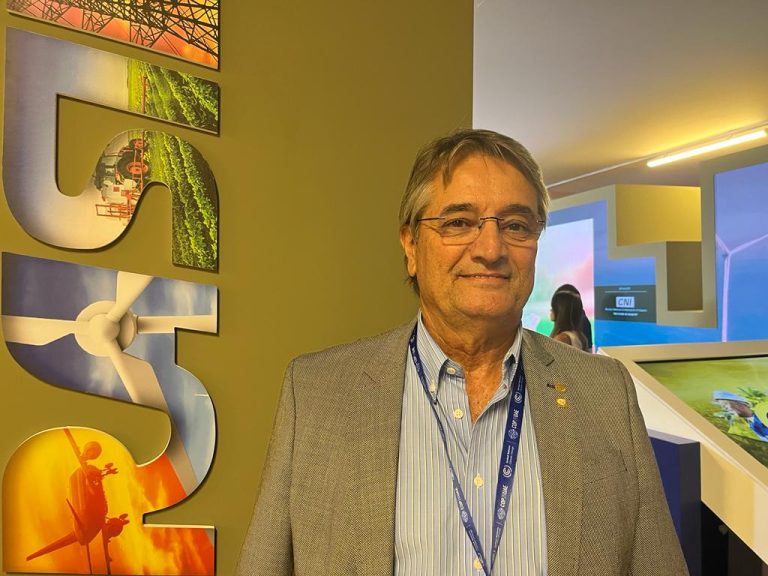Dubai – “Brazil will be the largest food producer in the world by 2035,” said the second vice-president of the Brazilian Confederation of Agriculture and Livestock (CNA), Gedeão Pereira, on the Food and Agriculture Day at the COP28 climate summit in Dubai. Pereira, president of the Agriculture Federation of Rio Grande do Sul (FARSUL), spoke to ANBA about the panel that addressed the challenges of balancing food and energy security with climate security.
“In the history of humanity, there has never been agricultural growth of this magnitude, where in 26 years a country went from being an importer to the world’s biggest exporter, and in a few years, Brazil will be the largest producer,” he declared. He recalled that the CNA has branch offices in Dubai, Shanghai, and Singapore to promote Brazilian products such as fruits, nuts, and specialty coffees.

Pereira stated that, among the different types of renewable energy discussed, Brazil has the cleanest energy in the world, with hydroelectric power and significant investments in wind and photovoltaics, in addition to the biofuel ethanol from sugar cane and, now, investments in corn ethanol.
“We have this massive agriculture using only 22% of the national territory. Brazilian agriculture uses the best technologies available today because if it manages to be one of the world’s agricultural industry leaders using 22% of the territory, it is not destroying the Amazon – there are other causes, like illegal mining and logging. So we see agriculture as very environmentally balanced,” he declared.
Pereira said the Amazon is not sustainable, except environmentally. “What is sustainability? A tripod – economic, social and environmental. The economic and social aspects are lacking. We have to find a way to develop the people living in the Amazon. I cannot abide having 30 million poor people in the Amazon,” he said.
And how could this be done? “Our forest laws say that one can deforest a part, for example, while maintaining 80%. They have to follow that. We don’t accept the illegal, but the legal, because people have to live, do fair livestock farming, good agriculture, develop humanly, and not be marginalized,” he declared.
Oil exploration in the Amazon
Pereira believes exploring the oil and gas reserves in the Amazon is necessary. “We have to explore because if you have a country with several energy sources, oil is one of them, and humanity still cannot give up the use of oil because it does not have technology that can replace it at all levels. It’s wealth,” he declared.
“What fuel will we use in the tractors to produce the food?” he asked, saying that today, all agricultural machinery in Brazil and the world is powered by diesel. “And now, part of it is powered by biodiesel, which is 10% soybean oil. Ethanol is not produced enough,” he said.
FAO roadmap
During Food and Agriculture Day at COP28, the United Nations Food and Agriculture Organization (FAO) launched a roadmap that aims to align food systems with the goals of containing global warming to 1.5°C and eradicating hunger. Food systems contribute to a third of global greenhouse gas emissions, while climate change has pushed 122 million more people into hunger since 2019.
According to climate analysts, the FAO roadmap is a crucial first step. It establishes goals and deadlines for ten issues, including climate change, biodiversity, healthy diets, and sustainable production.
However, the roadmap has also been criticized for being insufficient. Experts point out that it does not pay due attention to nature, does not indicate significant reductions in meat and dairy consumption in rich countries, nor addresses power inequalities in the food system.
Translated by Elúsio Brasileiro




